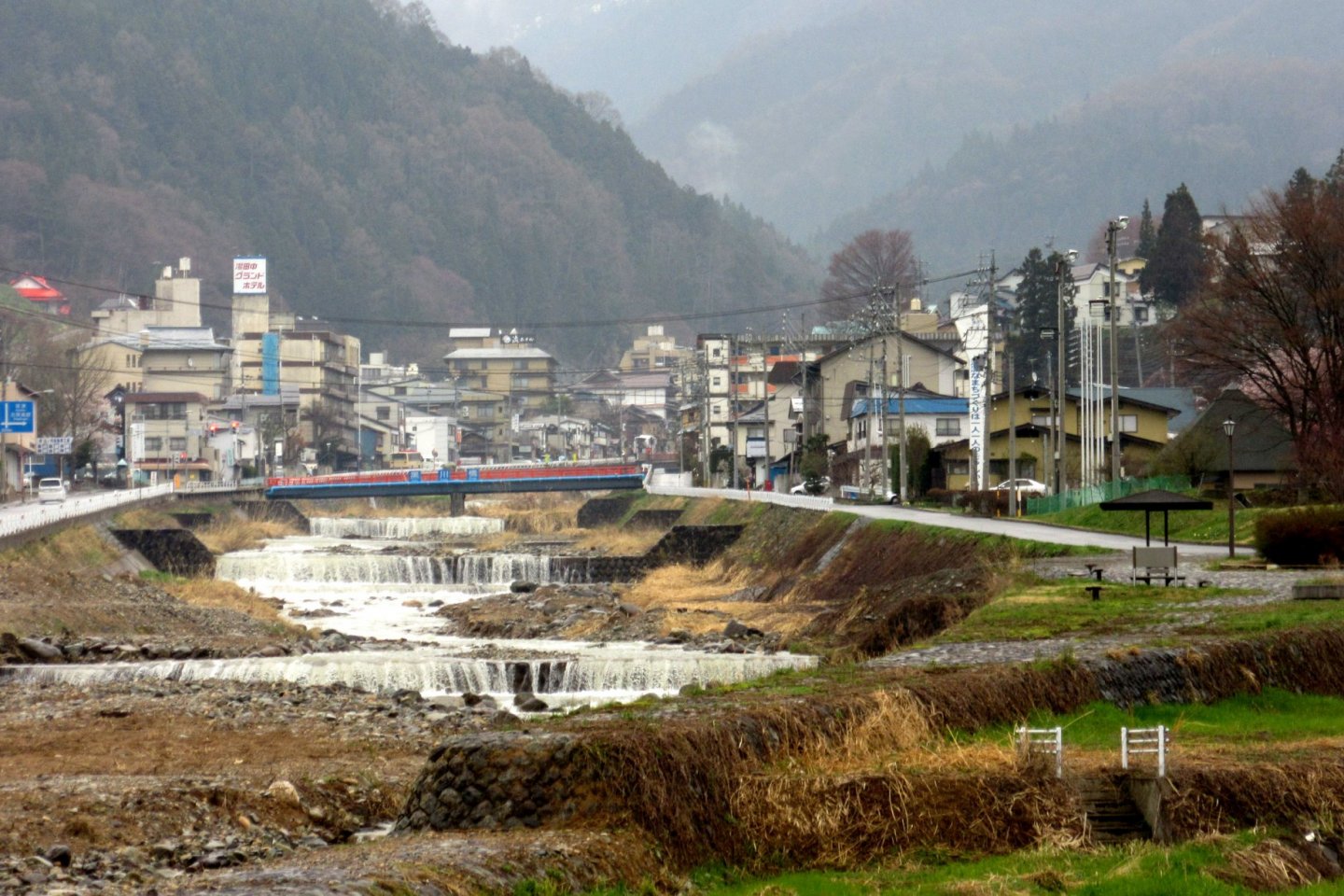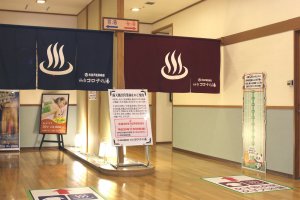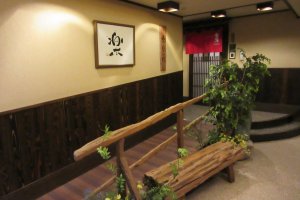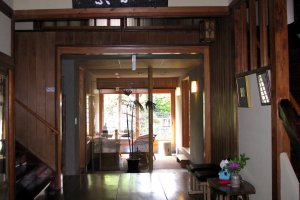Onsen and Japanese spa (they call it supa) are my favorite places for relaxation and my favorite type of public bath. What I like most is that there is plenty of hot water! I've tried several traditional baths such as Russian baths and Finnish sauna, but I can't say that I liked those experiences. Japanese onsen fits me perfectly as it has private places for washing and big common baths which are as big as pools. I loved onsen since the very first time I visited one with my Japanese friend.

Onsen can be found all over Japan, including special onsen towns such as Yudanaka, Zao, Kinosaki, Kusatsu, Gero, Atami, and hundreds of others! These towns usually contain public baths and Japanese style hotels called ryokan which also feature hot spring baths. Those small towns usually have wonderful natural surroundings, so visitors can enjoy beautiful views along with a relaxing experience for their bodies. The great number of onsen indicates how significant and beloved this type of vacation is in Japan. When staying in a ryokan I enjoyed the traditional wooden buildings, the Japanese style rooms with tatami floors, and sleeping on a futon and having a big traditional dinner after taking a bath. It was one of my very best experiences in Japan!

These onsens and spas can be found not only in onsen towns but in cities as well. For instance, in Tokyo tourists can try Saya-no-Yudokoro or LaQua Spa, or Oedo Onsen Monogatari, though spas in Tokyo are more expensive than in Nagano or Sendai. During my travels, I try to find hotels with public baths, such as the B Tokyo Suidobashi – to soak in a hot bath after a day spent on my feet is the greatest pleasure and relaxation, but it’s better to take a bath before dinner! My favorites are outdoor baths that are not as hot as indoor ones. In some baths, there is a built-in hydro massage for your feet, back, and other parts of the body. In spacious onsen, there are beds for relaxing between baths as breaks are recommended. Onsens and public baths are free for guests staying in a ryokan or hotel, while some spa admissions cost over 2000 yen – but they're definitely worth that!
Of course, it’s better to try onsen for yourself rather than read about it!

































One of the highlights of my next trip was a stay in Noboribetsu Onsen at the Daiichi Takimotokan. Great scenery, amazing food, but most importantly: by far the greatest onsen I've been to. There's something magic about soaking in a rotemburo overlooking beautiful Jigokudani while the snow is falling on your head :-)
Ever since my main criterium for choosing a hotel is if they have a public bath. My favorite hotel in Tokyo so far is the APA Hotel Asakusa Tawaramchi, with a rooftop rotemburo! Too bad I've only stayed at a few nice ryokan and been to just a couple of onsen towns, mostly because my focus on matsuri demanded more conveniently located hotels. But apart from hotels, whenever I encounter a nice onsen or sento and I do have some time to spare, I'll usually give it a go. Apart from those big places like Oedo Onsen they usually just cost a few hundred yen. Tokyo even has a fixed price of 470 yen for those typical neighborhood sento or onsen!
One of the most special places to me is still Izu-Oshima. My hotel had a nice onsen, sure. But one of the highlights was ending each day at the Hamanoyu (http://tokyoislands.jp/hama-no-yu, mixed bathing so bring swimwear!) just outside Motomachi, enjoying the sunset over the sea together with the locals, it just doesn't get more relaxed than that. But even more amazing was after climbing Miharayama walking all the way to Miharayama Onsen, for a soak with this view: https://i.imgur.com/AyDhEKg.jpg
Saya-no-Yudokoro will be on my list for my next visit to Tokyo!
I've been at a hotel near Ueno that had an onsen (at least they said it was "natural hot spring"), but the water had a different, very unnatural color each night. Clear on the first night, nothing wrong with that! But green the next day, and by green I mean a truly "green" green. Milky white the day after that. Sky blue. Blood red. And I seemed to be the only one ever using the onsen, even when it was quite busy during golden week. And no one at the front desk spoke just a single word English. It didn't feel or smell weird though. Was this some way to emphasize everything was cleaned during the day? It was pretty weird...
One other "bad" onsen experience was in Kaga Onsen: the water was just way too hot! I've been at other "hot" onsen before, but usually that's a matter of slowly getting used to it. Didn't work there. Even after a few minutes with just my feet in the water and scooping buckets of water over my body it kept feeling boiling hot. But somehow I seemed to be the only one who couldn't handle it....
I guess it isn't a problem that English isn't my native language? I'm not sure how much that shows in my comments?